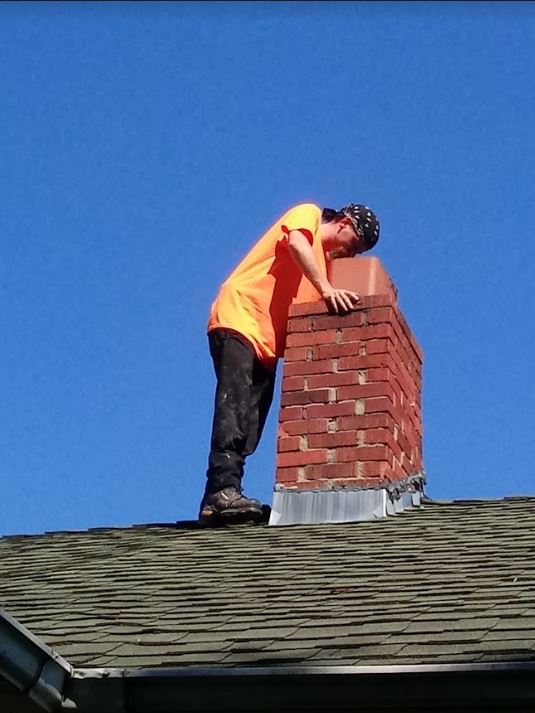GET RID OF SQUIRRELS ONCE AND FOR ALL
Where Will Squirrels Live In My Home?
You’ve most certainly seen squirrels crawling in the trees next to your home. They are extremely common animals, especially in urban areas. But, despite how common they are outdoors, they can make their way into your home! They prefer to be in the attics of homes, which makes the problem even more complicated and destructive. Though they aren’t difficult to trap, the setup needs to be perfect to make sure the squirrel doesn’t get out of the way of the trap.
Why Should I Remove Squirrels?
Squirrels need to be removed for a few reasons. To start, squirrels are extremely destructive. They will cause extensive damage to your home that can potentially cost thousands of dollars. Squirrels will chew through anything- including wires. This makes them a particularly dangerous pest as they are a major fire hazard.
The waste products of squirrels will also begin to make the house smell if not taken care of. This can also cause more damage to your home due to waste products staining the materials in the attic. In order to protect your home, removing squirrels is a must.

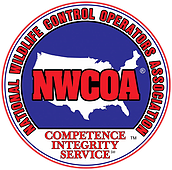
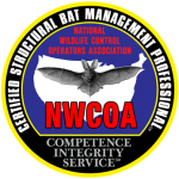

How We Remove Squirrels
Before we go about removing the squirrel, we must locate exactly where the squirrel is. We will look for the squirrel itself as well as determine whether or not there are babies present. If we discover that the squirrel did give birth, we will change our plans accordingly.
When it comes time to remove the squirrel, we make sure that we only use humane methods of removal. We will never poison or kill the squirrel. We won’t put the squirrel at risk of being harmed, either. We take care to only use ethical methods of removal. We will use a trap that is appropriate for the squirrel, ensuring that it’s not too small or too big.
Repairing And Cleaning
Once the squirrel is removed, our team gets to work cleaning and repairing the area. We ensure that the entrance hole the squirrel used is covered, preventing future infestations. We will inspect the damage caused by the squirrel and create a price estimate for how much damage was caused. We will fix it or, if you’d rather someone else fix it, pass the estimate on to you. Before leaving the area we will conduct a thorough cleaning to ensure that your family is safe and that there is no risk of disease. Our cleanup process involves the decontamination and sterilization of the impacted area.
We will also provide advice on how to prevent future infestations. We take note of the environment and whether or not it is likely to attract squirrels. We will advise you on how to make your yard less attractive to squirrels in order to avoid future problems.
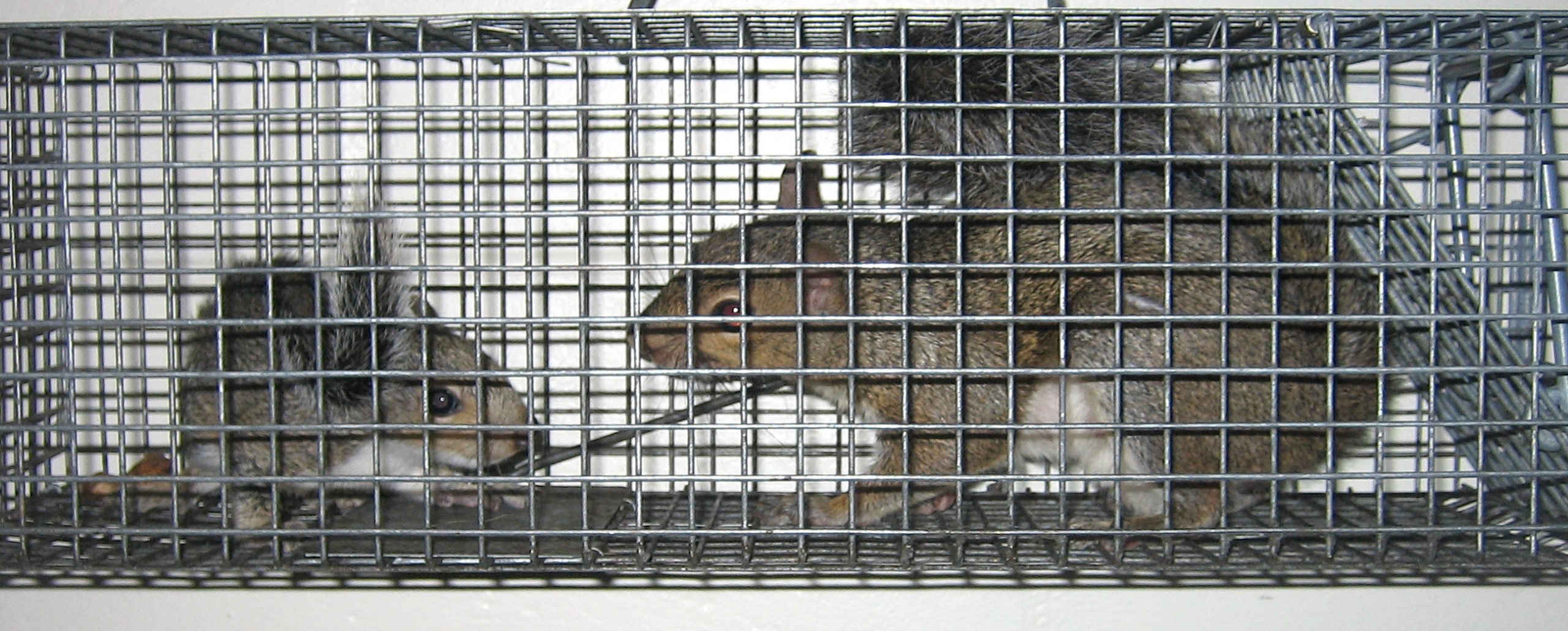
How to Keep Squirrels Away
It’s not uncommon to discover you’ve got squirrels living on your property. It might surprise you, but squirrels are the number one most common type of pest you’ll find living up in your attic. So we, at Frank’s Wildlife Removal, have found it’s useful to take preventive measures. Here is a great source to learn how to keep squirrels away at howtokeepsquirrelsaway.com
After all, prevention is always better than having to hire a professional wildlife removal service, not to mention cheaper. What’s even better, the preventive measures described in this article may be designed for keeping squirrels away, but they’ll also work just as well against other wild intruders. So that’s always a bonus!
So What Can You do to Keep Squirrels Away?
Below, we’ll share some of our favorite prevention methods. Down the years, through our work at Frank’s Wildlife Removal, we’ve found these to be efficient, though of course not foolproof. Still, the more of these steps you take, the smaller the risk of attracting squirrels to your property.
Figure out what’s attracting them, and remove it
If a squirrel has no reason to come to your home, it won’t. And squirrels, like most wild animals, are attracted to human homes for a very simple reason – food. The thing is, squirrels have a very strong sense of smell, so they’ll pick up scents from a long way away.
This is why experts recommend keeping a tight lid on bins, not leaving leftovers out in the open, and of course, maintaining a clean house.
Another tactic that we, at Frank’s Wildlife Removal, have found to be efficient is placing attractors away from your property. It stands to reason that you’d want to attract the squirrels away from your home, right? So you might do well to place food and other such attractants on the very edges of your property, thus keeping them from the house and main part of the yard.
Try planting squirrel-repellent flowers
There’s a lot of debate on this subject – do natural repellents work or not? In our experience, we’ve had both positive and negative feedback on the subject, but at the very least, we’d say it can’t hurt if you give it a try!
At the very least, you’ll have some nice flowers in your yard. And as we saw earlier, squirrels have a very acute sense of smell, so there may be some truth to these natural repellents.
Some flowers that have been marked as known squirrel repellents include daffodils, geraniums, hyacinths, and lilies of the valley.
Use predator urine
One of the most common predators for squirrels is none other than a plain old household cat. So obviously, our first recommendation would be to get yourself a furry pet who doubles as a squirrel scarecrow.
However, if that’s not an option, there are special stores that sell predator urine. You can scatter this around your property, once again using the squirrel’s strong sense of scent against it. If it senses the urine, it’s natural that the squirrel will assume you’ve got a cat, and so leave you well alone.
Frank’s Wildlife Removal Pro Tip: some people out there also recommend using false cat “decoys” (props), to ward off predators. In our experience, though, most wild animals (including squirrels) are clever enough to spot the difference, rendering these decoys inefficient.
Regularly inspect your property, and seal any gaps and holes
This feels like a no-brainer, but we have to say it. A squirrel can’t get into the house without an entry point, right? So what easier way is there to keep a squirrel out than sealing up its entry point?
This will mean doing regular inspections of your walls, window structures, roofs, and so on, to check for gaps and holes. Whenever you find these, you’ll need to then thoroughly inspect inside the house, to make sure there aren’t animals already living inside.
Once you’re assured there aren’t (or once you’ve safely removed them), you can begin sealing the entry points with chicken wire or wire mesh (which makes it difficult for squirrels to chew through.
It might not sound like a lot, but at Frank’s Wildlife Removal, we’ve found that maintaining a tidy, well-repaired home goes a long way in warding off squirrels!
GET FAST QUOTE
Franks Wildlife SERVICES
Service Areas
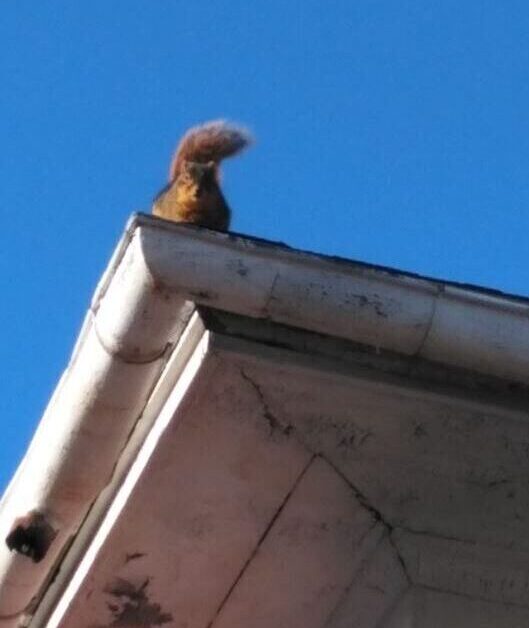

Tips For Getting a Squirrel Out of Your Home
Squirrels are small animals that can cause significant damage to your home. Because their teeth never stop growing, they always need to gnaw on something to keep them trimmed. Squirrels can cause significant damage to patio furniture, air conditioning systems, electrical wires, doors, and roof shingles. This article will discuss a few methods that you can employ to get squirrels out of your home.
Use a live trap
Live traps are designed to trap an animal and keep it alive for later translocation. One of the most popular live traps in use today is the cage trap. To trap and remove a squirrel from your home, you first need to find out exactly where the squirrels are hiding in your home. You can do this by looking for squirrel droppings or signs of gnawing. You could then place a cage trap in an appropriate location and wait for the squirrel or squirrels to be trapped. Trapped squirrels can then be safely translocated to a location far away from your home.
Use an ultrasonic device
You could buy a motion-triggered ultrasonic device to get squirrels out of your home. Ultrasonic devices are electronic devices that emit a high-pitched sound. This high-pitched sound, although inaudible to humans, is very irritating to squirrels. Although some of these ultrasonic devices could be expensive, they could be a very effective method that you could use to get squirrels out of your home.
Use mothballs
Mothballs are chemical pesticides that can be used to get squirrels out of your home. Mothballs have a pungent smell which acts as a squirrel repellent. They can be purchased at your home and garden store and placed in various areas in your home, especially in your attic. Once you have successfully used mothballs to drive squirrels out of your home, it would be wise to seal off any cracks or holes to prevent another squirrel infestation.
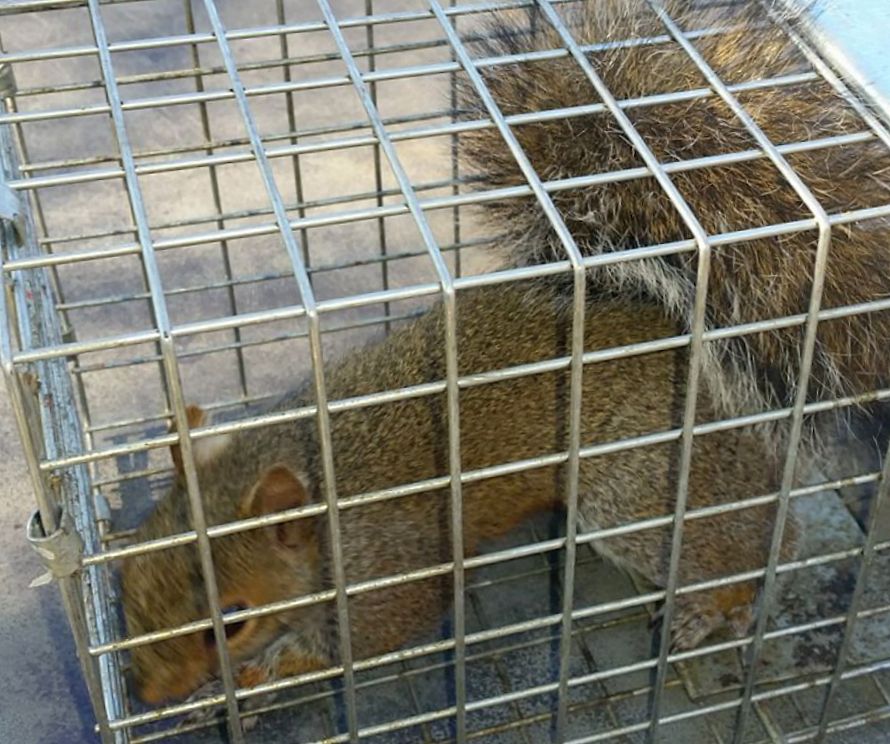
Use apple cider vinegar
Apple cider vinegar’s pungent smell is not only despised by some people, but squirrels also hate its smell. What you could do is mix a liter or two of apple cider vinegar with jalapeno or cayenne peppers and then spray the mixture around your home’s perimeter. Concentrate the spray around areas that you suspect are squirrel entry points. Doing this will go a long way to help keep squirrels away from your home as they hate the smell.
Use a sprinkler system
A sprinkler system may be an effective squirrel deterrent. Because squirrels are quite skittish, a motion sensor sprinkler system will help keep them away as it will produce a burst of water each time a squirrel comes too close to your home.
You can catch the squirrel
Catching a squirrel with your hands can be challenging but worthwhile if you succeed. First, what you need to do is put on heavy-duty gloves. It will help protect your hands from any potential scratches or bites from the squirrel. Then, throw a blanket on top of the squirrel. With the squirrel covered, you can gently pick it up without hurting it and then take it far away from your home and set it free.
Call a Professional Wildlife Removal Company
When all else has failed, then calling in a professional wildlife removal company may be your best bet. Sometimes, getting a squirrel out of your home can be very difficult, especially if they are nesting within your home’s ceiling cavities and walls. Frank’s Wildlife Removal is a wildlife removal company that operates in most of middle and lower Michigan.
The company only uses humane and ethical methods of squirrel removal. They will never kill or poison any squirrel to get it out of your home. With Frank’s Wildlife Removal, you are sure that no squirrels in your home are at any risk of being harmed during the removal process.
In addition, after the squirrels in your home have been removed, the company will ensure that any entrance holes that the squirrels used are covered. Doing this will go a long way to preventing future squirrel infestations.
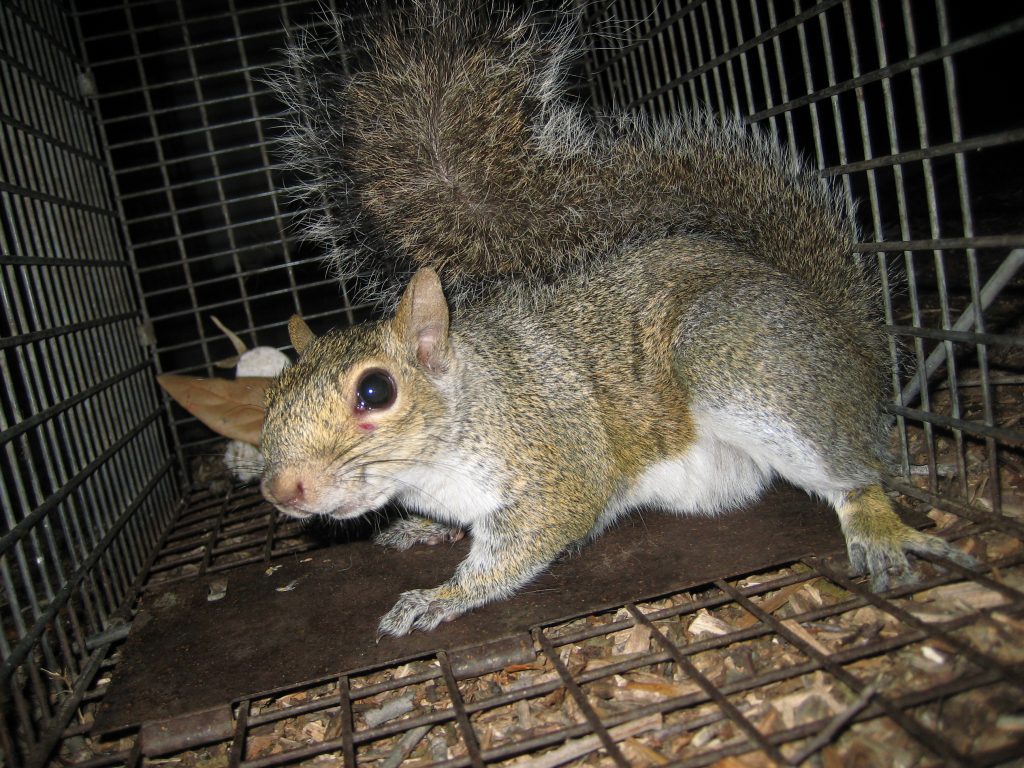
How to Get Squirrels Out of Your Attic
While we’re pretty sure the ghosts in Field of Dreams weren’t talking about your attic, the point still stands. Nesting squirrels are looking for a safe, warm, and dry spot with good access to food and water. A perfect environment for them, then, is your attic.
Squirrels are diurnal, so if you’ve heard scurrying noises coming from your attic or wall cavities during the day, then there’s a good chance you have a nest somewhere. Prevention is better than cure, so they say, so it’s a good idea to make sure you’ve taken some precautions against a squirrel infestation on your property.
If you have pets, make sure to feed them indoors or clean uneaten food away. Check around your property for any access points a squirrel could use to enter, like rotten boards or loose vents.
Squirrels are much stronger than they appear; they can move loose bricks and chew through roof timber, so make sure to do a thorough inspection.
How to remove squirrels from your attic
The first step once you’ve discovered squirrels in your attic is to check for any young. During Spring and Fall, it’s far more likely that a mother squirrel will be setting up a nest. If possible, if you find a litter of squirrels, leave them for a few weeks until the babies are old enough to leave on their own. If you absolutely cannot wait, then call a professional. Relocating young squirrels will most likely lead them to death.
If you don’t find any young, you can try these steps:
- Bait a trap. Check with wildlife officials in your area before setting up any kind of trap, as laws differ greatly. Once given the go-ahead, set up a live trap and bait it with something like peanut butter; you can then release the squirrel in a new location. Alternatively, you can use a deathtrap that will humanely kill the squirrel.
- Use Squirrel repellant. You can use either a commercial repellant, which mimics the scent of predators or a chemical repellent such as ammonia. Spray all the areas frequented by the squirrel, such as their latrines or entry points. You can also leave a rag soaked in ammonia near the nest to make it seem unattractive.
- Use Light and Noise. Squirrels have very sensitive hearing and can hear high-pitched noises that even dogs cannot. Leaving a radio on loudly, combined with strobe lights, is often more than enough to convince your pests to leave. You can also buy commercial rodent repellents which emit high-frequency noise to make things uncomfortable for them.
- Call a professional. If you aren’t confident in dealing with a rodent alone, the best course of action can be to use a pro. Dealing with pests can also be a legal nightmare, so it can often be better to use a pest control company that will be aware of any legislation they need to follow. Always check for credentials and read reviews online.
How to stop squirrels from returning
Once you’ve taken care of your rodent problem, the next step is to ensure it doesn’t happen again. If your attic was attractive to a squirrel, then there may be some issues to take care of.
Cut back any trees that give squirrels access to your roof; they can jump further than you think, so make sure there’s a reasonable distance between the treeline and your property wherever possible.
Perform an inspection of your attic, roof, and the exterior of your home and find any access points the squirrels may have used. Use rodent-resistant patches to make sure any future squirrels can’t get in the same way. Cover any vents with mesh, and apply a sealant to even the slightest of gaps you find around wiring and pipes.

